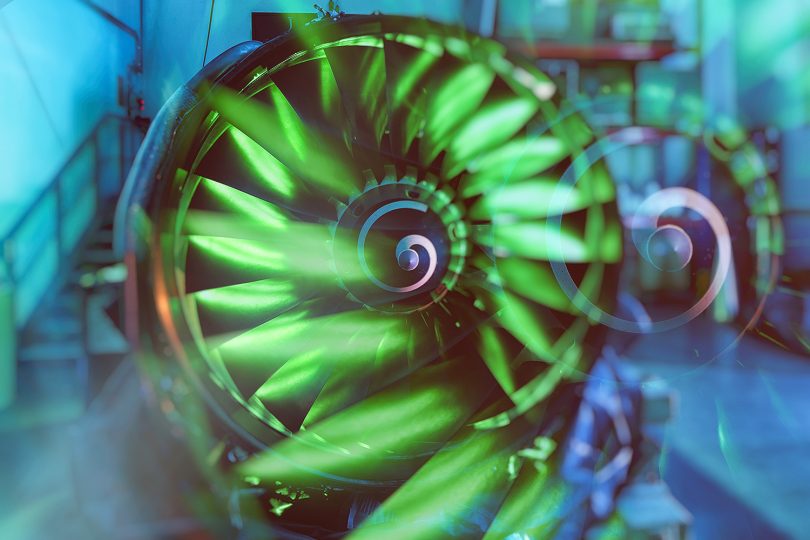The future of flying is (also) electric Symposium "Electric Propulsors in Aviation" in Braunschweig
In Braunschweig, 50 experts discussed how air transport can meet its greatest challenge: reducing emissions and noise. At the symposium “Electric Propulsors in Aviation” on 14 October 2021, they addressed the electrification of aircraft, the state of the art and the prospects. Their common goal: to establish the meeting of research and industry in this young field of technology and thus promote the development of electric aircraft propulsion systems.
By the year 2050, CO2 emissions and the noise level of new aircraft are to be reduced by 75 respectively 65 percent compared to the year 2000, according to the European Union’s targets. “Since the first powered flight by the Wright brothers, there has not been a challenge for aviation that is as great,” says Professor Jens Friedrichs, head of the Institute of Jet Propulsion and Turbomachinery (IFAS) and spokesperson for the cluster of excellence SE²A – Sustainable and Energy-Efficient Aviation. The aim, he says, is to have many more electric propulsion systems in the air in 15 years at the latest than is the case today. “Only electric flying offers a sustainable solution.“
The symposium dealt with what tasks need to be done. In principle, according to the tenor, all components of the aircraft and also the infrastructure would have to be rethought in order to replace the gas turbine with the electric motor. The certification of electric drives, maintenance and charging of batteries, the balancing of social and economic interests: In the technical sessions, the open questions experienced new approaches to solutions. Thanks to the support of the Braunschweig Research Airport, the necessary partnerships have already been established in the networking sessions.
One thing is clear: on international long-haul routes, the gas turbine will have to provide thrust in the long term as well. In regional and national air traffic, however, electric aircraft open up new possibilities. “For research and development, this dynamic is something great: we have a target that we all stand behind,” says Anke Kaysser-Pyzalla from DLR, patron of the symposium. The symposium will be one of the platforms for cooperation. The VDI plans to “look at the topic again from a broader perspective”, says Josef Thomas, member of the board of the Braunschweig district association.
In addition, he said, the “Luftfahrt der Zukunft“ (Aviation of the Future) series of events organised by the VDI, DLR, the German Society for Aeronautics and Astronautics and the Aeronautics Research Centre Niedersachsen (NFL) will be devoted to electrification at a panel discussion next year. Josef Thomas: “Electric flight propulsion will keep us engineers busy for the next 30 or 40 years.“
What is an electric propulsor?
Electric propulsors serve as electric drives for aircraft and replace or supplement conventional drives based on combustion technologies such as gas turbines. The electrical energy is stored in batteries or fuel cells. For this purpose, an electric motor drives a propeller or a fan. This technology offers several advantages: On the one hand, we can fly in a climate-friendly way. On the other hand, electric propulsors have a good efficiency at a small size. This makes it possible to integrate many distributed electric motors with small propellers into the aircraft aerodynamics. In contrast, classical engines usually have only two per aircraft. A challenge, however, is their power density, which is significantly lower than that of gas turbines. There is also a need to catch up in the cooling of electric motors and in the widespread use of energy storage systems.
About the symposium
The symposium at the Automotive Research Centre Niedersachsen was organised by the Advisory Board for Aerospace Technology of the Association of German Engineers (VDI), the VDI district associations from Braunschweig, Bremen and Hamburg and the Institute of Jet Propulsion and Turbomachinery (IFAS) of Technische Universität Braunschweig. The industrial cooperation partner was Rolls-Royce Deutschland Electrical. The patronage was assumed by Prof. Dr.-Ing Anke Kaysser-Pyzalla, Chairwoman of the Executive Board of the German Aerospace Center (DLR).

